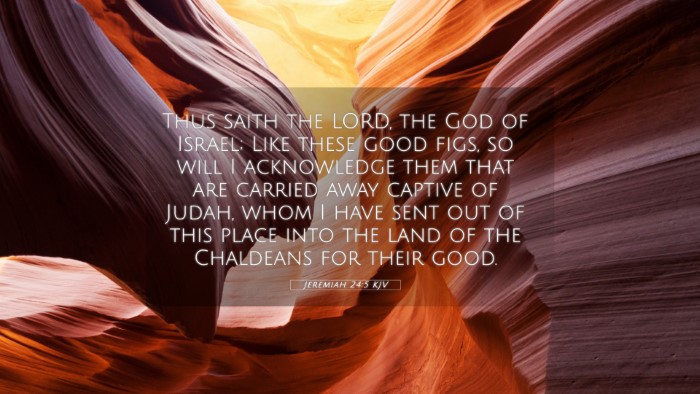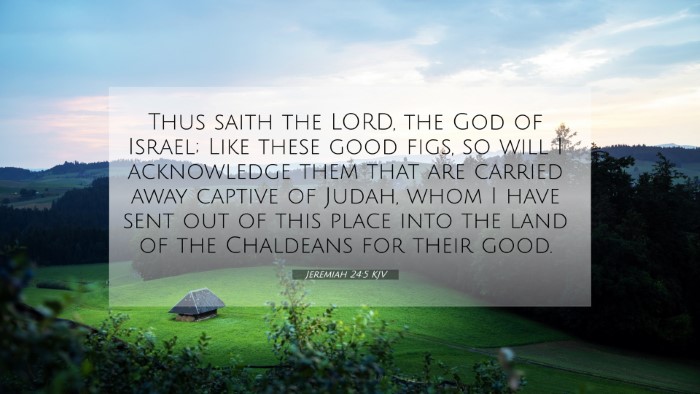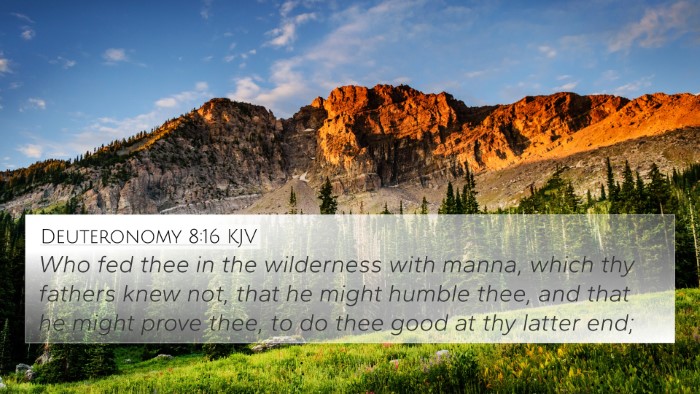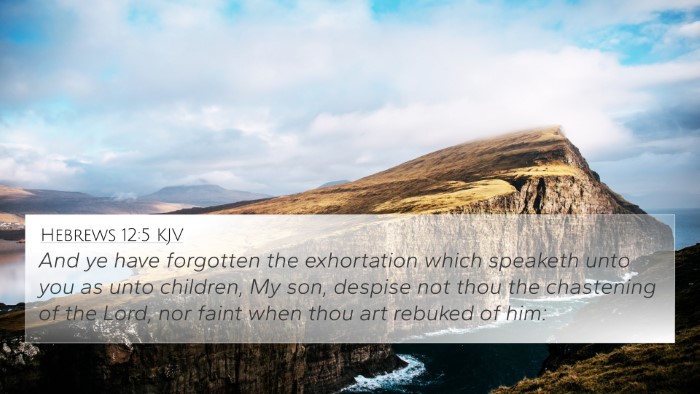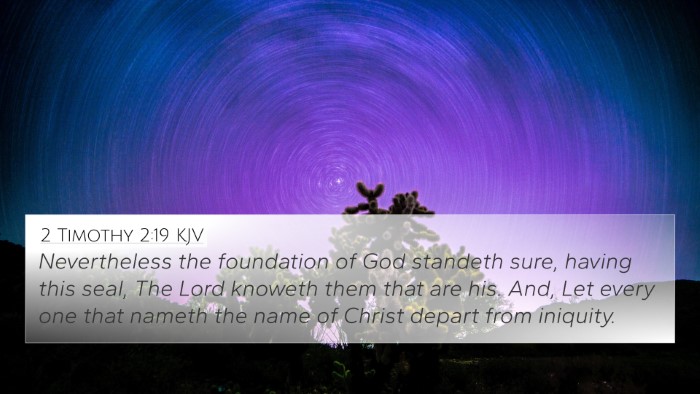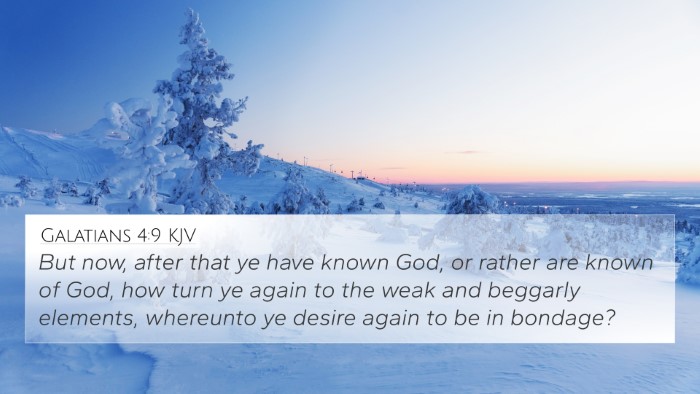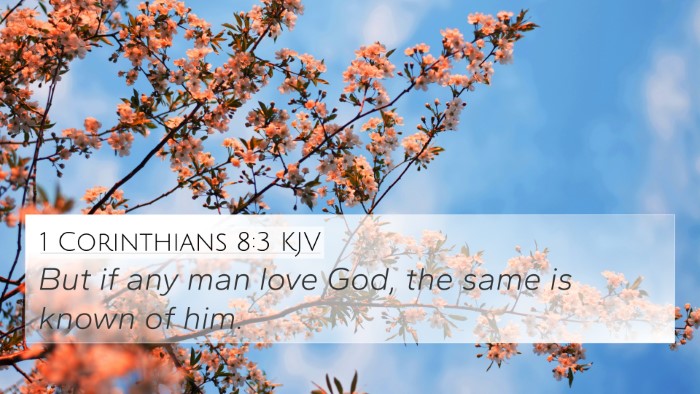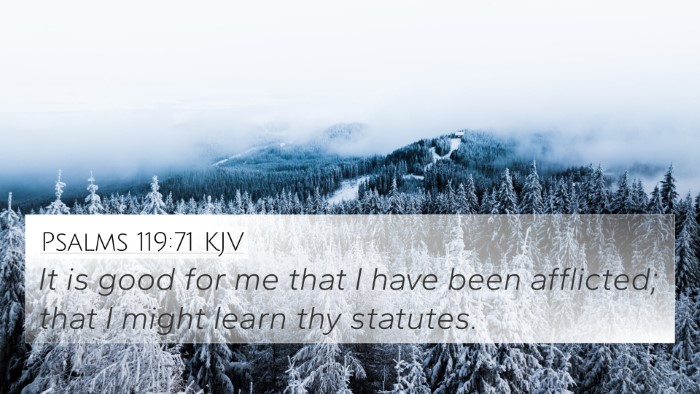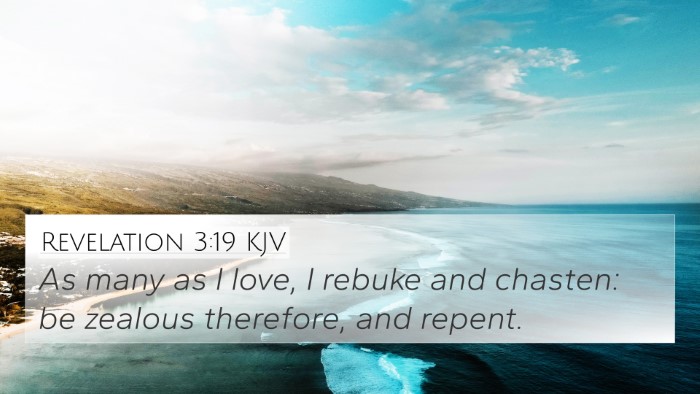Understanding Jeremiah 24:5
Jeremiah 24:5 states: "Thus says the LORD, 'Like these good figs, so will I regard as good the exiles from Judah, whom I have sent away from this place to the land of the Chaldeans.' This verse presents a powerful message of hope and restoration from God, indicating His protective regard for those who have been exiled from their homeland.
Contextual Background
In the broader narrative of Jeremiah, the prophet addresses the fate of Judah's people after their captivity. The "good figs" symbolize those whom God will favor and restore, contrasting with the "bad figs" (as referenced in the preceding part of the chapter), which represent the individuals who remained in Judah and would face judgment.
Commentary Insights
Matthew Henry's Commentary
Henry highlights that this verse reflects God's mercy despite the disobedience of His people. He notes that the "good figs" signify those who will eventually return to Jerusalem, emphasizing God's intention to redeem and bless His people. This symbolizes God's unwavering commitment to fulfill His covenant promises, demonstrating a consistent theme of restoration within the prophetic literature.
Albert Barnes' Notes
Barnes interprets "good figs" as a metaphor for the remnant of Israel, who, despite being in exile, would be preserved by God. He explains that these chosen individuals are to be nurtured and eventually reinstated, suggesting that their faithfulness, even in adversity, is recognized and rewarded by the Lord. This reinforces the idea of divine providence and care, even in difficult circumstances.
Adam Clarke's Commentary
Clarke provides a detailed explanation of the significance of exile and return. He elaborates on the "Chaldeans" as representatives of God's means of correction, indicating that the "good figs" are those who will experience transformation through their trials. Clarke stresses the importance of recognizing God’s overarching plan for redemption and the eventual reunification of His people.
Bible Cross-References
To deepen the understanding of Jeremiah 24:5, the following cross-references are relevant:
- Isaiah 43:5-6: God promises to gather His people from the east and the west.
- Ezekiel 36:24: God speaks of bringing His people back to their own land.
- Jeremiah 29:10-14: A promise of the restoration of Israel after seventy years in Babylon.
- Romans 11:5: A reference to the remnant of Israel being chosen by grace.
- Matthew 10:16: Jesus speaks about sending His followers into the world, similar to the exile framework.
- Hebrews 11:1-2: Faith is the assurance of things hoped for, the conviction of things not seen, paralleling the hope of returning exiles.
- Micah 2:12: A prophetic promise of gathering the remnants of Israel.
Thematic Connections
This verse connects with several overarching biblical themes:
- Redemption: God's sovereign ability to restore His people, indicating His power over circumstances.
- Hope in Exile: Assurance that, even when displaced, God's plans remain intact.
- Covenant Faithfulness: Emphasizes that God is unchanging and fulfills His promises, as seen through the remnant.
Conclusion
Jeremiah 24:5 serves as a strong reminder of God's compassion and the assured hope of restoration. As we consider this verse alongside related scriptures, it encourages believers to maintain faith in God's plans, even during seemingly despairing times. Through cross-referencing biblical texts, one can gain valuable insights into God's nature and His willingness to restore those who seek Him.

